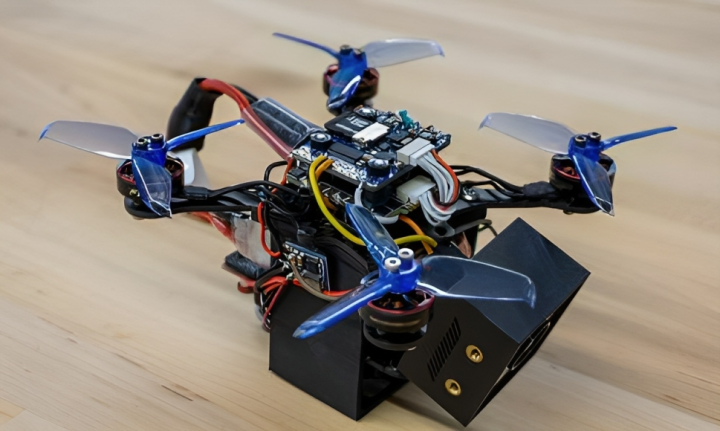Robotics Engineers Work to 'Bee' Part of the Climate Change Solution
This summer’s weather extremes were stark reminders that climate change is not only real, it’s here. Less visible to most of us than smoke-filled skies, water-logged roads and life-threatening heat—but just as important—is the dramatic and ongoing decline of global bee populations.
Many crops rely on commercially managed honeybees, wild native bees and other pollinators to reproduce. In fact, one-third of every bite of food we eat comes from plants that need to be pollinated, so pollinator health affects all of us. But almost 35 percent of insect pollinator populations worldwide are at risk of extinction and more than half of North American native bee species are declining due to pesticide use, habitat loss, climate change and intensive farming practices.
These concerning trends are at the root of the increasingly mainstream global campaigns to save the bees. But Nitin Sanket, a UMD alum (Ph.D. '21, computer science) and an assistant professor in the Department of Robotics Engineering, is approaching this issue from an entirely different angle.
“A lot of conservationists are working to preserve bees, and that’s a good thing,” says Sanket, who joined WPI’s faculty in 2022. “But the climate is changing pretty drastically, so we need alternatives as well, including looking at other ways to pollinate things.”
Click HERE to read the full article
The Department welcomes comments, suggestions and corrections. Send email to editor [-at-] cs [dot] umd [dot] edu.
